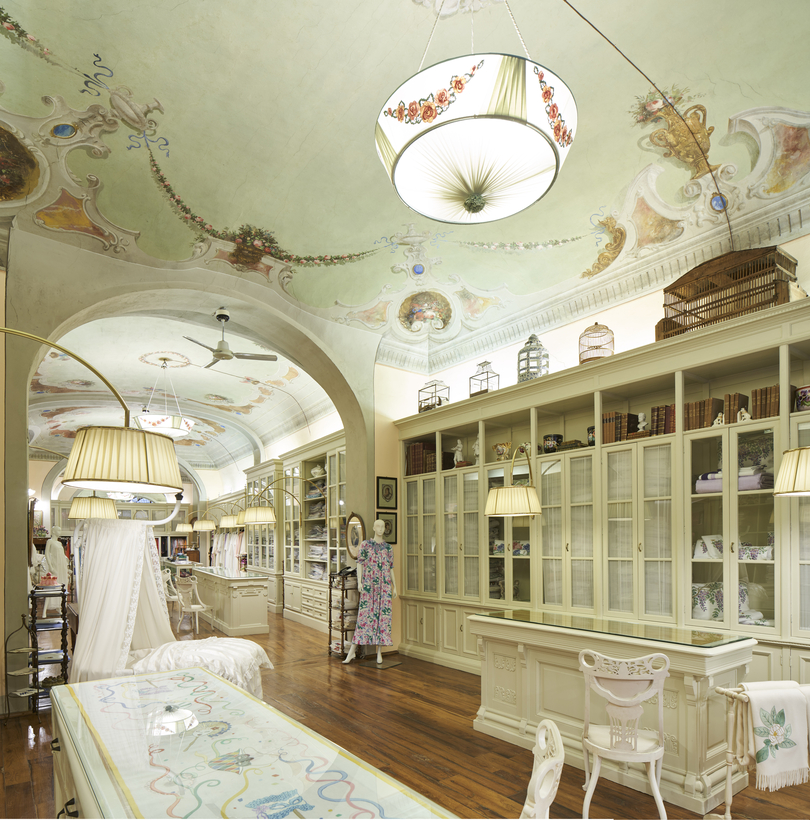When he was 19, Guido Conti Caponi spent his gap year working for Loretta Caponi, the Florentine linen bottega, or atelier, founded by his grandmother in 1967. His mother, Lucia, started working for the business around the same age, helping Loretta sell tablecloths, sheets, and charmingly fusty smocked nightgowns to European aristocracy from the same storefront they still inhabit today on Via delle Belle Donne (literally, “Street of the beautiful women”), a few steps away from the city’s Santa Maria Novella basilica. “I didn’t want to study, so I was really determined to work for the business,” Guido recalls. “But then after one year—and they were right, by the way—my mother and grandmother told me to take a degree first, and then I could come back.”

So he went to Milan, where he noticed chic twentysomethings wearing the Caponi blousy floral nightgowns as dresses, belted at the waist, ruched collars stretched down off their shoulders, and paired with heeled boots. They had always been a best-seller, but a new generation of women were putting their own spin on the family classic. It seemed like a missed opportunity. “Our marketing tool was only word of mouth, which still is the best one, I think. But it was not enough,” he says.
Chic Milanese twentysomethings wore the Caponi nightgowns as dresses, ruched collars stretched down off of their shoulders.
Now 31, Guido is back at the bottega, this time as the brand’s COO; one of his first orders of business was introducing a hint of the modern to a made-to-measure business that relies on techniques dating back to the Renaissance. While the majority of what the store does still revolves around custom homewares—intricately designed pillows, tablecloths, and cashmere blankets, often customized with the names and faces of the family dogs and always hand-embroidered by an expert team of sewers—Guido has taken charge of a line of ready-to-wear pieces, including Caponi’s best-selling nightgown. Made from prints inspired by the family’s historic designs, the gowns are now sold at the likes of Moda Operandi and MatchesFashion. Amanda Brooks, a devotee since she first visited the store during a trip to Florence, now also stocks a Caponi capsule collection, sewn from archival fabrics, at Cutter Brooks, her Cotswolds shop.
For Guido, though, the heart of the business will always be the bottega, where piles of linens sit on antique furniture under frescoed ceilings. “You can open a door and find yourself in the middle of our workshop, which is quite chaotic, of course, because it’s alive,” he says. “For us, it’s not a shop. It’s home.” Even with ready-to-wear, there are only so many concessions the brand will make to the 21st century. Launching their own e-commerce site, he says, is too far from their spirit. “If someone wants a bedspread for their bedroom, we need to see the pictures of the bedroom,” he says. —Andrea Whittle
Andrea Whittle is a writer and the features editor at W

